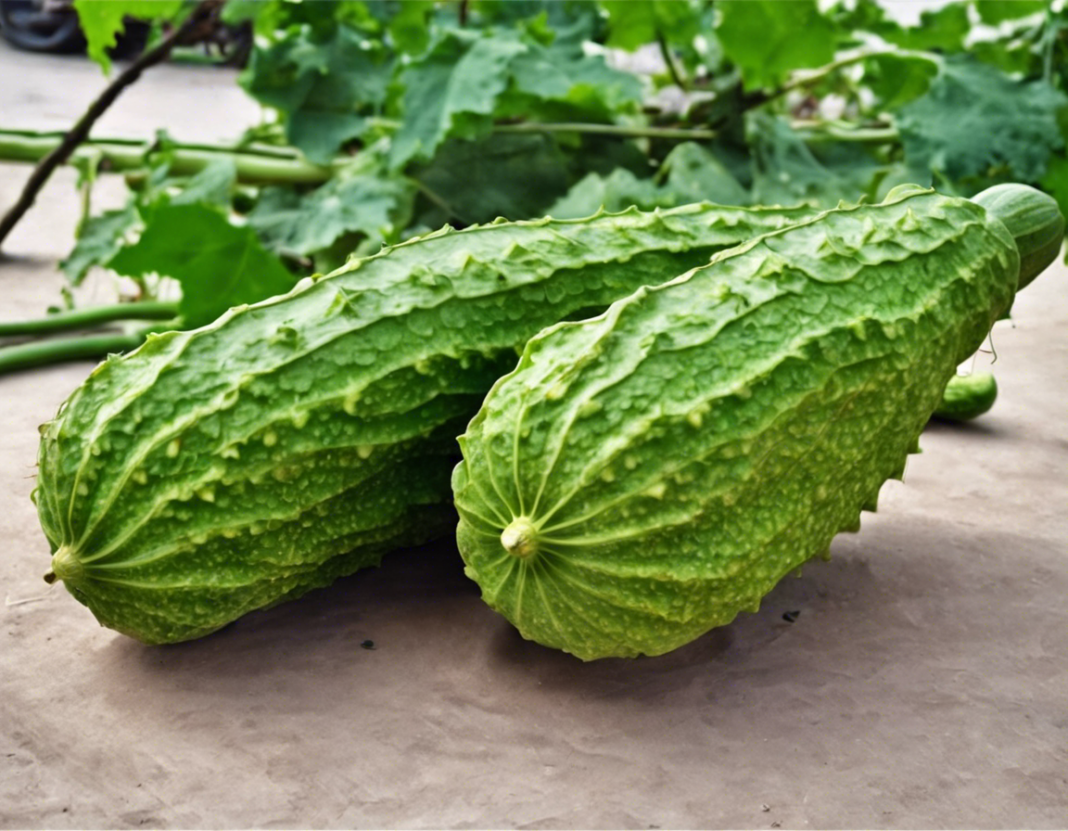Bitter gourd, known by its Hindi name Karela, is a vegetable that is widely consumed in many parts of India and across the globe for its various health benefits. Despite its bitter taste, bitter gourd is highly valued in traditional medicine systems like Ayurveda for its medicinal properties. In this article, we will delve deeper into the world of bitter gourd, exploring its Hindi name, its nutritional content, health benefits, cooking methods, and potential side effects.
Nutritional Content of Bitter Gourd
Bitter gourd is low in calories and rich in essential nutrients. It is an excellent source of vitamin C, an antioxidant that helps boost the immune system and promotes healthy skin. It also contains vitamin A, folate, potassium, and dietary fiber. Moreover, bitter gourd is known for its unique phytochemicals like momordicin and charantin, which are responsible for its bitter taste and various health benefits.
Health Benefits of Bitter Gourd
1. Blood Sugar Management
Bitter gourd is renowned for its hypoglycemic properties, making it a popular choice for individuals with diabetes. It contains compounds that mimic insulin, thereby helping to lower blood sugar levels. Consuming bitter gourd regularly may improve insulin sensitivity and reduce the risk of hyperglycemia.
2. Weight Management
Given its low-calorie content and high fiber levels, bitter gourd can be a valuable addition to a weight loss diet. The fiber in bitter gourd promotes a feeling of fullness, reducing overall calorie intake. Additionally, it helps regulate blood sugar levels and improve digestive health.
3. Antioxidant Properties
The antioxidants present in bitter gourd, such as vitamin C and other phytonutrients, help combat free radicals in the body. By neutralizing free radicals, bitter gourd can reduce oxidative stress and lower the risk of chronic diseases like cancer and heart disease.
4. Immune System Support
The abundance of vitamin C in bitter gourd plays a crucial role in supporting the immune system. Vitamin C helps stimulate the production of white blood cells, which are essential for fighting off infections and maintaining overall health.
Cooking Methods and Recipes
Bitter gourd can be prepared in various ways to reduce its bitterness while retaining its nutritional benefits. Here are some popular cooking methods and recipes:
– Stir-Frying: Sautéing bitter gourd with spices, onions, and tomatoes can help mellow its bitter taste.
– Stuffed Bitter Gourd: Hollow out the bitter gourd, stuff it with a flavorful mixture of spices and lentils, and cook until tender.
– Bitter Gourd Chips: Thinly slice bitter gourd, season with salt and spices, and bake or fry until crispy.
– Bitter Gourd Juice: Blend bitter gourd with other fruits or vegetables to create a nutrient-packed juice.
Experimenting with different cooking techniques can help you incorporate bitter gourd into your diet more deliciously.
Potential Side Effects of Bitter Gourd
While bitter gourd offers numerous health benefits, it may not be suitable for everyone. Some potential side effects of consuming bitter gourd include:
– Hypoglycemia: People taking blood sugar-lowering medications should monitor their blood sugar levels closely when consuming bitter gourd as it may lead to hypoglycemia.
– Gastrointestinal Issues: Bitter gourd may cause digestive discomfort in some individuals, especially when consumed in large quantities or in concentrated forms like bitter gourd juice.
– Pregnancy: Pregnant women are advised to consume bitter gourd in moderation as it may stimulate contractions and affect pregnancy.
It is essential to consult with a healthcare provider before incorporating bitter gourd into your diet, especially if you have underlying health conditions or are taking medications.
Frequently Asked Questions (FAQs)
1. Is bitter gourd safe for diabetes?
Bitter gourd is considered safe for individuals with diabetes as it can help lower blood sugar levels. However, it is essential to monitor blood sugar levels closely, especially if you are on medications, to avoid hypoglycemia.
2. Can bitter gourd be consumed raw?
While bitter gourd can be consumed raw, it is often preferred cooked or juiced to reduce its bitterness. Cooking bitter gourd can make it more palatable while retaining its nutritional benefits.
3. How often should bitter gourd be consumed for health benefits?
Consuming bitter gourd a few times a week can provide its health benefits. It is advisable to incorporate a variety of vegetables in your diet for overall nutrition.
4. Are there any contraindications to consuming bitter gourd?
Individuals with hypoglycemia, gastrointestinal issues, or pregnant women should consume bitter gourd with caution. Consulting a healthcare provider before adding it to your diet is recommended.
5. Can bitter gourd help with skin conditions?
Bitter gourd’s antioxidant properties and vitamin C content may help improve skin health. Including bitter gourd in your diet as part of a balanced nutrition plan may contribute to healthier skin.
In conclusion, bitter gourd, known as Karela in Hindi, is a nutritious vegetable with a host of health benefits. By understanding its nutritional content, health benefits, cooking methods, and potential side effects, you can make informed decisions about incorporating this bitter vegetable into your diet. Remember to enjoy bitter gourd in moderation and consult with a healthcare provider if you have any concerns regarding its consumption.

